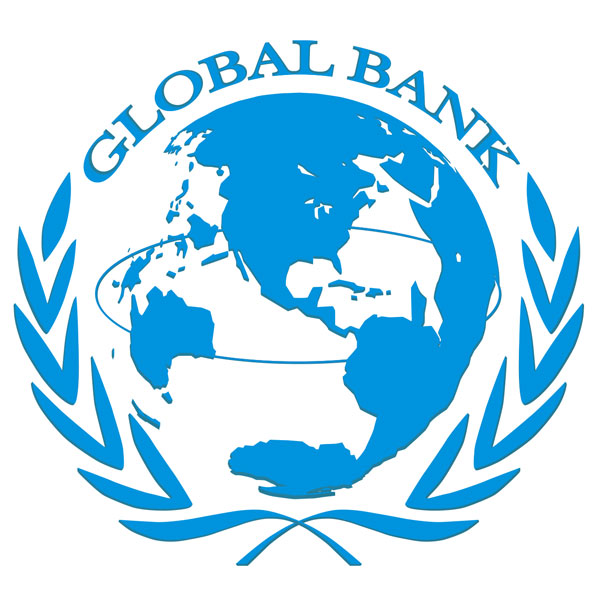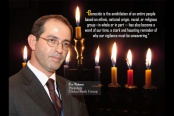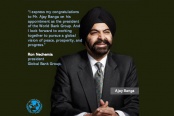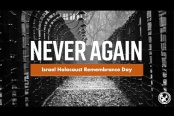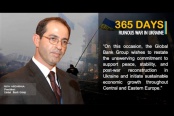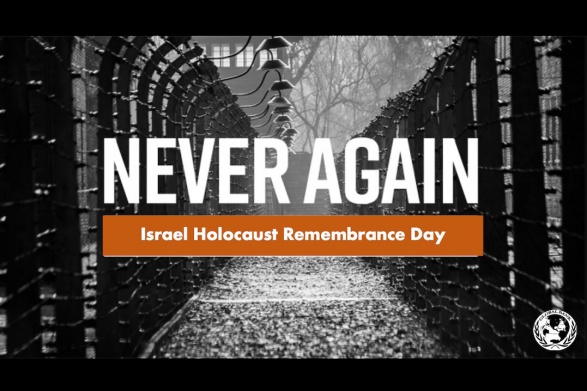
Statement by the Global Bank President Ron Nechemia on Holocaust Remembrance Day: We all have a “sacred responsibility” to combat hatred and intolerance and to protect humanity from the terror of a possible “nuclear holocaust.”
Newport Beach, CA – April 17, 2023 — Ron Nechemia, President of the Global Bank, issued a statement commemorating the 80th anniversary of Holocaust Remembrance Day. It marks the anniversary of the Warsaw Ghetto Uprising.
Ron Nechemia says on the Holocaust Memorial Day that we all have a “sacred responsibility” to combat hatred and intolerance and to protect humanity from the terror of a possible “nuclear holocaust.”
REMEMBER SURVIVORS AND VICTIMS
Today, we commemorate Holocaust Remembrance Day by remembering the six million Jews and 1.5 million Jewish children and millions of other Nazi victims who were persecuted and systematically murdered by the Nazis and their collaborators.
Exclusionary violence by Nazi Germany began with disinformation and hate speech, which aided systemic injustice, discrimination, and marginalization, and ended with genocidal killing.
Nazi Germany and its collaborators murdered over six million Jews between 1941 and 1945. The Holocaust, also known as the “Shoah” in Hebrew, was Nazi Germany’s “Final Solution” for exterminating all Jews within Nazi Germany’s grasp. By the end of this heinous act, nearly two-thirds of the Jewish population in Europe had been murdered.
“Today is a day to remember those who perished during the Holocaust, to remember the towns and cities and cultures that Nazi Germany destroyed, and to ensure that their stories are documented and memories preserved for eternity. Our remembrance is a yearning for wisdom and to ensure that such horror never happens again anywhere in the world,” Ron Nechemia says. It also attempts to imbue future generations with a different vision of human existence.”
Learning about the Holocaust and why it happened is an important part of global citizenship education.
As hate groups promote intolerance, antisemitism, bigotry, and all forms of hatred, Holocaust education provides a context to learn about the dangers of what can happen when hatred goes unchallenged, and there is indifference in the face of oppression of others. Therefore, learning how and why the Holocaust occurred is a vital component of global citizenship education.
Fragility, conflict, and violence (FCV)has increased dramatically in the last decade, and the fragility landscape is becoming more complex. Since the beginning of the COVID-19 pandemic, the world has seen a series of massive setbacks to stability in regions ranging from Asia and Africa to Latin America and the Caribbean, and most recently, Eastern Europe.
Fragility, conflict, and violence pose a critical development challenge that jeopardizes efforts to end extreme poverty in low and middle-income countries. By 2030, up to two-thirds of the world’s extremely poor could live in FCV settings.
Global Bank will continue to raise these concerns and advocate for change to promote peace, security, human rights and human dignity.
Global Bank works to promote Holocaust education and human rights as a means of understanding the importance of democratic principles, the use and abuse of power, and the importance of genocide prevention today.
Our organizational purpose, and values, are in the Global Bank Charter. The central role of the Global Bank is embracing the Bank’s ideals and values enshrined in its Charter; respect for fundamental human rights of men and women, social justice and human dignity, peace and security, the worth of the human person, self-determination of peoples, social progress and development, and leave no one behind.


